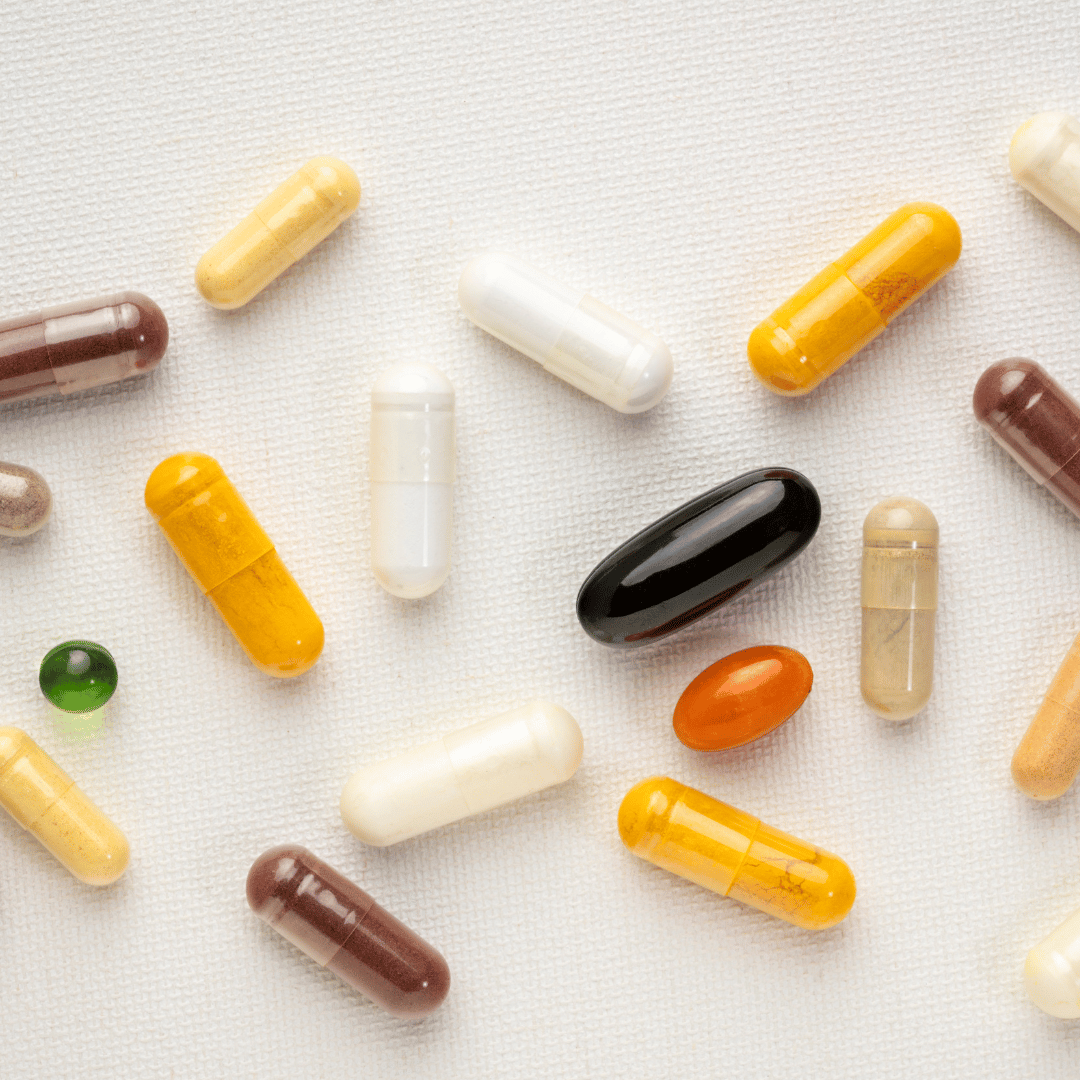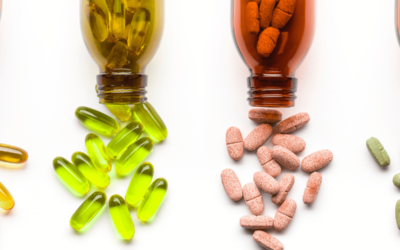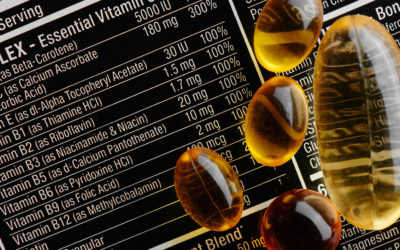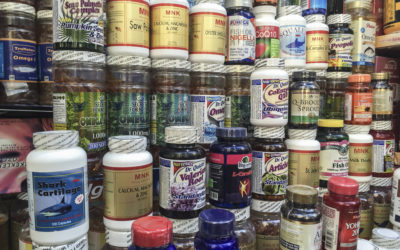My doctor encouraged me to stop taking all my supplements so we could determine whether the additives were causing my quirky symptoms.
Here’s what happened. I felt better. For a while.
And then symptoms returned.
My conclusion? The additives were causing problems, but something else is going on.
My doctor, a holistic practitioner with a deeply spiritual worldview, referred me to an extraordinary G.I. doc. He sat with me for an hour and a half and diagnosed me with Dysbiosis, a probable precursor to “Leaky Gut Syndrome” He put me on an intensive protocol of some very specific high quality products, which I’ve been taking for 20 days now.
So here’s what I’m learning about Dysbiosis and Leaky gut:
Let’s start with some basics about the gut. The human gut contains trillions of microorganisms, including bacteria, viruses, and fungi protists, archaea, and viruses – all living together (though not necessary in harmony) in the gastrointestinal tract. These microorganisms, collectively known as the gut microbiota, play a critical role in maintaining good health. As research focuses more on their interrelationship with almost everything, surprising and sometimes divisive, information emerges pretty much every day. That can potentially be good news; however, it can be confusing when trying to separate the science from the chaff.
The problem with any research is “BIAS” – especially around who does it, where it’s done, who funds it, who reviews it and whether it’s statistically significant. That said, it’s better to get information from peer-reviewed reputable journals that cite their sources, than some guy’s anecdotal personal experience posted on social media. I mean that, you’ll.
Bottom line – it’s important to do a robust scan of the research that’s out there, especially since this subject is a hot topic and leaky gut has suddenly become a catchphrase for just about everything.
Here’s a caveat from the Cleveland clinic:
“Many people have vague gastrointestinal symptoms, and many times the causes are frustratingly elusive. In the absence of straight answers, “leaky gut syndrome” has emerged in the mainstream as a catch-all diagnosis for general indigestion — and possibly many other conditions. But true intestinal hyperpermeability is too specific and too extreme to explain most people’s symptoms.
Most people simply have general gut inflammation — the precursor to intestinal permeability. This may be due to a specific disease, or it may be a cumulative effect of poor diet, chronic stress and other common factors. A qualified gastroenterologist can help you sort through the possible causes of your specific symptoms.”
As an avid consumer of health and healing research, I’ve been aware of the impact early history has on gut microbiome; however, I was never invited to explore this in any depth by a doctor… until now.
Here are a few things that came to light in the consultation leading to my diagnosis: I was bottle-fed, was frequently administered antibiotics, had chronic sore throats and bowel issues from infant hood, was often subject to abdominal pain, and had endless dental work that resulted in a mouth full of mercury amalgam fillings. It probably didn’t help that I ate the standard Italian-American diet (meat, pasta, cheese, heavy sauces, processed lunch meats) blended with the typical American food choices of processed food and an endless array of salty and sweet snacks. I actually consumed pixie sticks regularly…. which, if you remember, are nothing but pure sugar packets that you inhale down your gullet. And maybe worst of all – I played in the fog of the DDT truck that swept through the neighborhood killing bugs.. and as it turns out, maybe kids.
However, according to the research, there were also a lot of things in my early childhood that protected me. I played in the dirt, in creeks, in puddles, in the woods, and rolled around on the ground everywhere. I drank out of the hose, ate food that fell on the ground, shared gum out of my friend’s mouth, played outdoors until dark, and had a mom who made me rest when I was sick and fed me milkshakes with raw eggs rather than giving me conventional meds. I was only taken to the doctor if I were dying, otherwise, I was“walking it off”. And, maybe the most significant of all, I suffered through all the child diseases, which are now thought to enhance immunity (though still a divisive theory).
Anyway, that said, the general consensus appears to be this: Dysbiosis is caused by wide-ranging factors such as genetic background, health status and early history (infections, inflammation), environmental factors such as diet (high sugar, low fiber, food additives) exposure to toxic products (carcinogenic chemicals, mold), xenobiotics (antibiotics, drugs,), lifestyle habits and hygiene.
Here’s a quote from Journal of Microorganisms entitled Gut Microbiota Dysbiosis: Triggers, Consequences, Diagnostic and Therapeutic Options ((2022 Mar 7;10(3):578))
“There is growing evidence that the gut microbiota plays a critical role in many immune-mediated, metabolic, and neurological diseases. The most important factors that negatively affect the gut microbiota are environmental factors, particularly unhealthy diets and medications. Genetic factors probably do not play as large a role in the increase in these diseases because they are relatively stable. A dysbiosis microbiota can compromise the gut barrier, resulting in tissues and organs being flooded with molecules from the diet and microbiota that can negatively impact the host immune system and metabolism. Moreover, the negative feedback loop can actually exacerbate dysbiosis. For example, the diseased liver is unable to regulate the gut microbiota through bile acids and other microbiota-modulating factors.”
Yikes!
Anyway, back to the subject at hand. The bottom line is, Dysbiosis is hypothesized to be a precursor to leaky gut … so here’s the skinny on that:
Leaky gut syndrome, also known as increased intestinal permeability, is a condition where the lining of the intestine becomes more permeable than normal, allowing undigested food particles, toxins, and bacteria to pass through the intestinal wall and enter the bloodstream. According to peer-reviewed research, this wreaks havoc – triggering an immune response that can lead to inflammation and a whole range of annoying, sometimes debilitating symptoms.
Here are some of the symptoms that are typically cited:
- Chronic diarrhea, constipation, or bloating
- Nutritional deficiencies
- Headaches
- Brain fog
- Skin rashes
- Joint pain
- Low energy
- Autoimmune diseases
- Food sensitivities or allergies
- Indigestion
- Heartburn
- Nausea
- Abdominal pain, including burning feelings
- Sleep issues
I had about 85% of these.
The treatment for Dysbiosis depends on the underlying cause and the severity of the imbalance. Some possible alternative treatments typically include:
- Probiotics: Probiotics are live microorganisms that can help restore the balance of the gut microbiota. They can be taken as supplements or found in foods such as yogurt, kefir, and kimchi.
- Prebiotics: Prebiotics are a type of fiber that feeds the beneficial bacteria in the gut, promoting their growth and diversity. They can be found in a wide variety of foods including onions, garlic, and artichokes.
- Dietary changes: Limit high carb intake while eating a diet rich in high fiber foods, fruits and vegetables. Include fermented foods, like yogurt, kefir and kimchi, to help support the growth of beneficial bacteria in the gut.
- Follow a low FODMAP diet (fermentable oligo-, di-, and monosaccharides and polyols), FODMAPs are short chain indigestible carbs that trigger digestive symptoms like bloating, gas, stomach pain, and altered bowel habits varying from constipation to diarrhea or a combination of both. (For more info: https://my.clevelandclinic.org/health/treatments/22466-low-fodmap-diet).
- Antibiotic stewardship: When antibiotics are necessary, it is important to use them judiciously to minimize their impact on the gut microbiota.
- Stress reduction: Practicing stress-reducing techniques such as meditation, yoga, and deep breathing can help support the health of the gut microbiota.
- Limit the use of NSAIDS
The protocol prescribed by my GI doc… who just might be a genius – is a multi-ingredient probiotic smoothie, along with a whole array of high quality (but, unfortunately expensive) supplements, some of which, I’d never encountered before. Since my diet is already pretty clean, I wasn’t given specific dietary instructions, other than to avoid the skin of tomatoes,
So, whatever you choose to call it – whether, dysbiosis, leaky gut or the inflammatory precursor, I’m willing to experiment with this healing protocol.
I’ll keep you posted on how this goes… but so far, I’m having some remarkable results; more energy, more stamina, better sleep, less nausea, and more smiley faces.
So, in a nutshell, I am on a mission to eliminate additives and toxic chemicals from all the supplements I ingest, all the products I use, and all the skin care products I put on my body. Part of this mission is to share what I discover, so we can all benefit – because I believe everyone deserves to know, and because there’s nothing I like more than research.
Stay tuned for updates.
For a whole lot of in-depth scientific stuff on Dysbiosis, check out these articles:
- https://www.ncbi.nlm.nih.gov/pmc/articles/PMC4838534/#:~:text=Dysbiosis%20has%20been%20associated%20with,Autism%2C%20and%20certain%20gastrointestinal%20cancers.
- https://www.ncbi.nlm.nih.gov/pmc/articles/PMC8954387/#:~:text=Dysbiosis%20can%20be%20caused%20by,food%20additives)%2C%20and%20hygiene
- https://www.ncbi.nlm.nih.gov/pmc/articles/PMC6790068/
- https://primehealthdenver.com/dysbiosis-diet/
- https://www.webmd.com/digestive-disorders/features/leaky-gut-syndrome





0 Comments